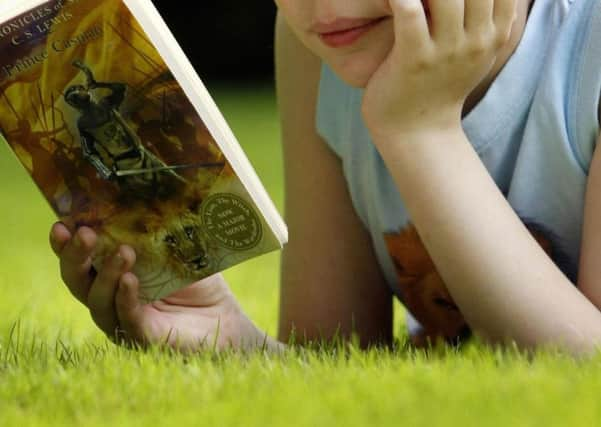Children’s reading levels hit nine-year high


Research by the National Literacy Trust has shown a 28 per cent increase in the number of youngsters who read on a daily basis in the last 12 months - but many parents appear to be unaware of how vital their support is for their children’s reading and the gender gap is growing between girls’ and boys’ reading.
In Yorkshire and the Humber, 52.5 per cent of children questioned said they enjoy reading quite a lot or very much, just a fraction short of the national figure, 54.4 per cent, the highest it has been since the Trust began the survey in 2010. Just under two in five, 38.8 per cent, read daily outside of class. The national figure was 41.1 per cent - an increase of more than 28 per cent on the previous year.
Advertisement
Hide AdAdvertisement
Hide AdHowever, a breakdown of the figures show that girls are keener on reading than boys, and more than half of those polled still prefer watching television to reading. Almost a third said they cannot find things to read that interest them.
Leeds children’s author Hilary Robinson, has written over 50 children’s books, including the bestselling Mixed Up Fairy Tales. She said relentless campaigning by authors, librarians, teachers and passionate parents was encouraging a love of books in children, but it could not be forced.
“Reading habits as children do not necessarily correlate with reading habits as adults,” she said. “The worst thing a parent can do if a child loses interest in reading is to force them - its up to us as authors to find ways in which to engage them. There will always be authors that come along that engage boys, like Anthony Horowitz and David Walliams, who are doing a great job of making reading cool.”
Youngsters are reading a wide variety of materials, including websites, emails, ebooks, blogs, fiction, lyrics, comics and poems.
Advertisement
Hide AdAdvertisement
Hide AdThe research showed there is still more to be done to raise awareness among parents of how important their engagement is for their child’s literacy development, particularly among the most disadvantaged children.
In the survey, one child in four agreed with the statement “my parents don’t care if I spend any time reading”. This increased sharply among pupils who receive free school meals with almost a third agreeing compared to 23 per cent who do not receive free meals.
The study also examined youngsters’ background and found that those with a white heritage are least likely to enjoy reading and are more likely to have negative attitudes towards it.
Trust director Jonathan Douglas said: “It is very encouraging to see that the number of children who read every day has radically increased. However, it is a real concern that a third of the most disadvantaged children think their parents do not care whether they read. More must be done to help parents realise what a difference reading with their children from a young age can make to their future.”
Fantasy worlds are most popular
Advertisement
Hide AdAdvertisement
Hide AdThe fantasy worlds of Suzanne Collins’ The Hunger Games, Stephanie Meyer’s Twilight and Veronica Roth’s Divergent are among the most popular with children.
Researchers found that six out of ten children have a favourite book or story, with JK Rowling’s Harry Potter and Jeff Kinney’s Diary of a Wimpy Kid, also featuring in the top ten.
War Horse by Michael Morpurgo was also popular. He said: “How good it is to have some heartening news about young readers, to know that there are so many now who have taken to reading.
“But much is still to be done. Too many boys still seem disinterested in reading, and far, far too many children simply never become readers at all.”